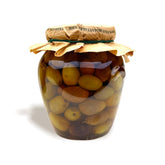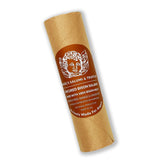What Is The Difference Between Artisanal Salami And Industrial Salami?
A very long time ago, there was an ancient need to preserve the food that was hunted and caught. We, as humans devised clever ways to make sure that the meat could remain edible throughout seasons where no food was readily available. In time, the art of salting and curing meats became a skilled craft bringing together communities on vast trade routes throughout the world. In this way, new techniques were formed, adapted, refined, and improved upon resulting in a hand-made way of crafting we now call, “artisanal”.
Fast forward to the industrial age where, as another means of necessity, we constructed devices and mechanisms to help reduce the back-breaking manual labor we were subjecting our bodies to. We began to produce “things” at an exponential rate in a shorter amount of time in a more uniform manner. That is the goal, right? Work smarter, not harder. Modern production thrives on the advances we have made in this mechanized technology, and this is what we call, “industrial”.
Sometimes bigger isn’t exactly better. Sometimes factories get so large that the quality of a product is overshadowed by the quantity being produced, the human touch goes away, and the object just doesn’t have the same “uniqueness” as that of its ancestor. In this blog post we’ll go over the key differences between artisan-crafted salami and industrial-made salami.
What is Artisanal Salami?
Artisanal salami can be defined as traditionally crafted cured meats, fermented and dried by hand in small batches with little or no reliance on machinery. Artisan-made salami involves creativity, passion, community, and culture along with a little character. Think about your local farmers market for a second, imagine all the vendors, each selling their personal something that they created by hand, the time and effort, and the attention to detail that went into making something this special. This is artisanal. A benefit of crafting artisanal salami is that you can refine and enhance your product constantly. You are able to provide a deeper level of quality control to the process and incorporate those subtle, complex flavors to make an award-winning salami, such as the Black Truffle Salami from Angel’s Salumi & Truffles. Characteristics of an artisanal salami do not only include the robust taste, but also the unique shape of each hand-tied chub, the knobby texture and dense weight, and the deep aroma locked in beneath that first bite. Heavenly.

artisanal salami chubs have a unique shape and are tied by hand
What is Industrial Salami?
Industrial salami is factory-produced cured meat made using machines in a large-scale production. Picture a factory, stainless steel conveyor belts, dials, vats, buttons, levers and all. There is a low hum of electricity from the mixer, or maybe that was the grinder. A robot repositions a rack of hanging meats as it weighs the rack, checking how much moisture has escaped the meat during fermentation. All the salami appears identical, the casing perfect, the diameter exact. Industrial salami is perfect in every way, from start to finish. In the industrial salami factory, you may encounter casings which are inedible. To create a more cylindrical housing, collagen or fibrous casings are often used. The salami is packed and labeled neatly by machine and sent off to a store near you. There is no need for the artisan here, everything is precisely calculated and automatized.

The components of an Industrial Salami Factory in Italy
Examples of Artisanal Salumi from Angel’s Salumi & Truffles
1. Black Truffle Salami
This salami is crafted using heritage bred Berkshire Pork. We choose this special breed for its exquisite taste and texture. We then incorporate black truffles sourced from Perigord, France with our outstanding truffle oil. The salami is then packed into a natural pork casing and hand-tied with string. From there it is hung, dry-cured, fermented, and then aged to perfection for three months in a dry-room.
2. Duck Salami
This unique salami has become one of the most sensational of our salumi. Not only is this salami pork-free, but it also cannot be compared. Our 100% duck salami is made with magret duck meat, red wine, and black peppercorn. After the duck has been hung to dry, it takes about two months to lock in the rich flavor this salami has to offer.
3. Wild Boar Salami
One of the highlights of our wild game line of salami is our Wild Boar Salami. We craft this salami using wild Texas Boar that we combine with the flavors of the Mediterranean including select herbs, red wine, and garlic. The wild boar is a standout when it comes to being artisanal, because throughout the year, the meat itself changes in flavor based on the seasonal diet of the animal.
Conclusion
To conclude, crafting an artisanal salami takes a tremendous amount of patience, time, and energy. It involves honing one’s skilled trade and using their hands to create a unique result. The tradition of making natural artisan salami dates back thousands of years when artisans would travel long distances to sell their goods and learn new ways to improve. We craft our all-natural salami in the traditional sense. Our method of sourcing from trusted farms, selecting the highest quality ingredients, and tying our salami by hand make us artisanal, and we intend to keep things that way as it enables us to continually refine our passion.
If you would like to learn more about our artisanal salami and charcuterie, head to our website www.AngelSalumi.com to browse our entire line of artisanal products.
Click here to get our award-winning, artisan-made black truffle salami delivered to your door.





